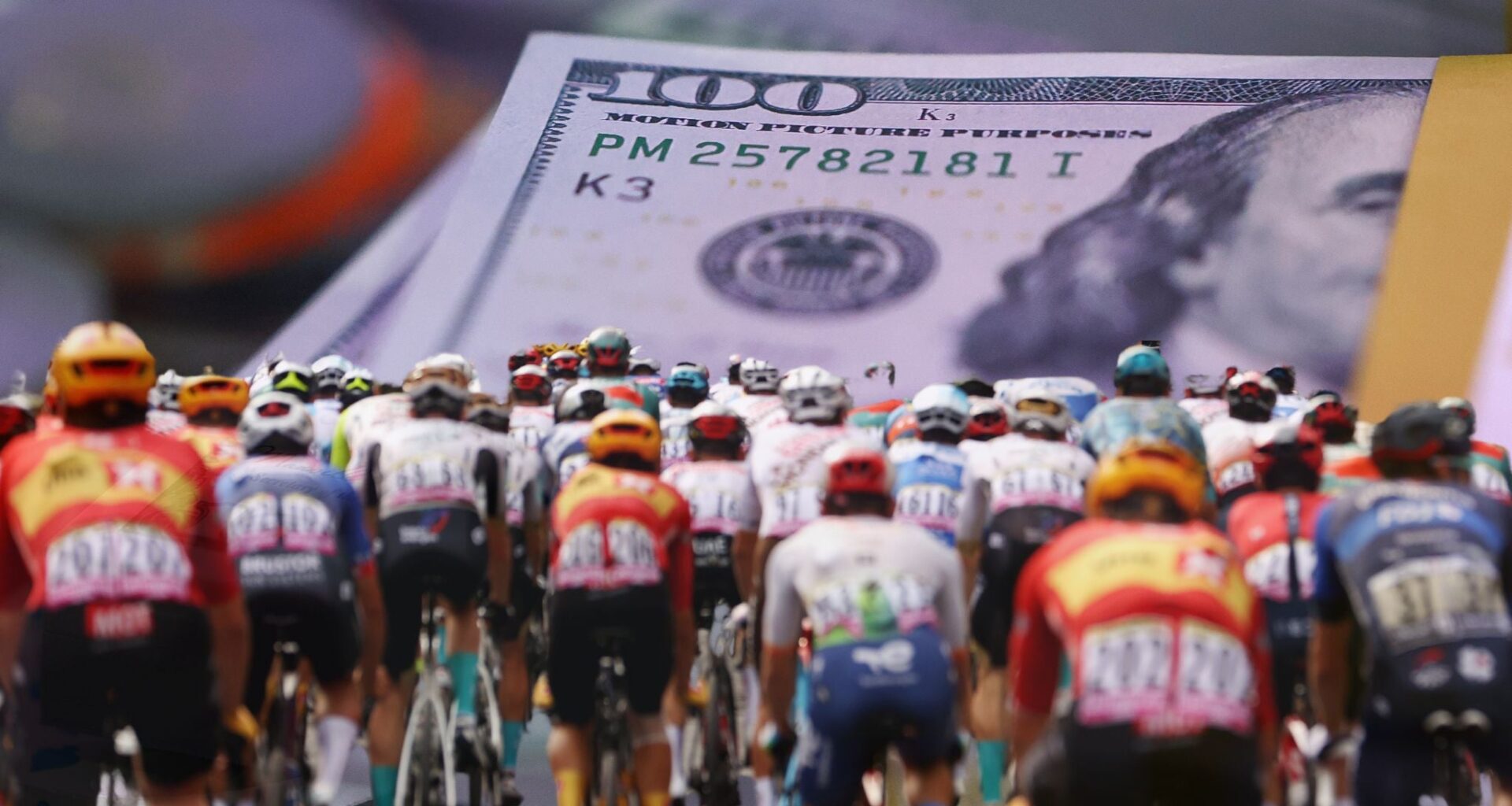Published November 2, 2025 05:19PM
When international headlines broke last month about the NBA gambling scandal involving players, insiders and bookies in cahoots to fix games, it quietly set off alarm bells within the pro cycling peloton.
While no proven case of race-fixing has been documented in the men’s pro peloton, that doesn’t mean that it doesn’t happen or that it can’t happen.
Professional cycling is far from the mainstream sporting radar, so that means that there’s less money sloshing around in the online and offline illegal betting world, but there’s also a lot less scrutiny.
If the NBA could pull it off for years despite being under the spotlight 24-7, what could happen in professional road racing?
And in a sport with a nefarious past riddled with cheaters of every stripe, and where there are grey zones, there is always someone willing to muddy the waters for personal gain.
UCI president David Lappartient told Het Laatste Nieuws raised the specter of illegal betting in cycling in an earlier interview.
“Sports betting is like an iceberg. Ninety percent of the bets are illegal and happen below the waterline,” Lapparient told HLN. “That’s how it is in football, tennis and handball. I do not want to get to a day when cycling, once we have climbed out of the valley of doping, and the fight against mechanical fraud has been successfully carried out, is undermined by corruption and gambling scandals.”
Gambling on cycling is real. The question is, are the cheaters following the money? Let’s dive in.
Why is cycling so vulnerable
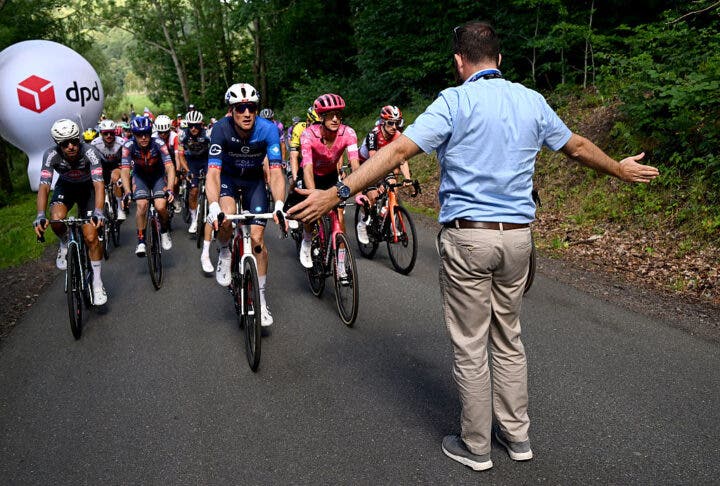 Cycling hasn’t had its ‘Pete Rose’ moment yet. (Photo: Luc Claessen/Getty Images)
Cycling hasn’t had its ‘Pete Rose’ moment yet. (Photo: Luc Claessen/Getty Images)
The brazenness of the NBA scandal reveals that even with a tightly regulated, highly visible sport like a basketball game in front of millions of TV viewers and tens of thousands of paid ticket holders, manipulation is possible.
Federal prosecutors charged more than 30 individuals, including current and former NBA figures such as Terry Rozier and Chauncey Billups, in a sweeping investigation into illegal sports bets and rigged poker games linked to organized-crime networks.
Rozier is accused of sharing insider game information and deliberately underperforming to benefit “prop bets” or real-time bets on a myriad of outcomes.
Could the same thing happen in professional racing?
Cycling is vulnerable simply in its vastness and scope of the sport.
The racing season runs nearly year-round when cyclocross is added to the mix.
And every race itself — like the Tour de France with 21 stages, countless classifications and time bonuses — is incredibly complex even for the most ardent of fans to follow.
That means there are multiple races every day in a multitude of bets to target for cheating at some level.
Cycling hasn’t had its Pete Rose moment yet. And perhaps it never will.
Today, professional racing is more closely followed than ever before. Even race radio can be hacked, and TV cameras are now mounted inside team cars, so anything out of order should be picked up.
Riders today are also paid better than ever before in the sport’s history, so there’s less pressure not only to dope, but also to cross the line to illegal betting or race fixing.
All it would take would be a single rider or sports director to ever so slightly alter the outcome of a bunch sprint here or a breakaway there to shatter the integrity of the sport.
Even shards of billions are a big temptation
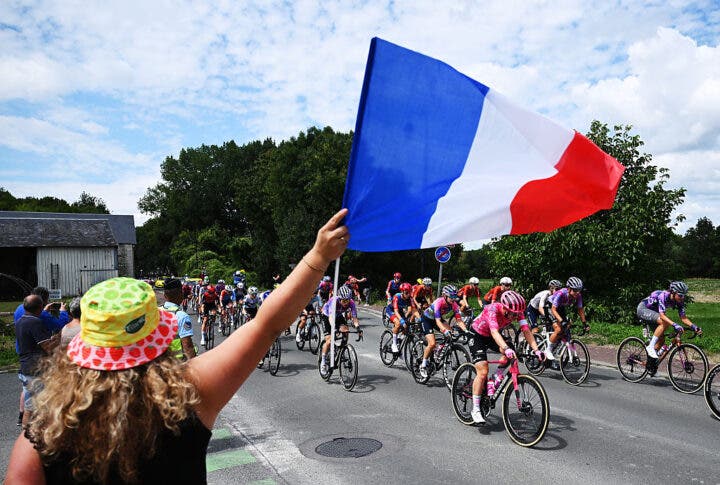 The cycling betting market is minuscule compared to mainstream sports, but its footprint is growing (Photo: Szymon Gruchalski/Getty Images)
The cycling betting market is minuscule compared to mainstream sports, but its footprint is growing (Photo: Szymon Gruchalski/Getty Images)
Where there’s money, there’s always a temptation to cheat.
With the rise of legal online betting, coupled with ever-expanding casino sports books and illegal betting, there are billions of dollars being laid down every year across the booming sports betting market.
The legal global online sports betting market size is estimated to be around $45 billion to $50 billion in 2025 and is projected to reach approximately $150 billion by 2030, according to media reports.
Last month, a stunning federal probe into the NBA exposed how insider betting and underground gambling networks can infiltrate even the most tightly regulated sports.
The scandal — which saw top names like Rozier and Billups charged with tipping off associates and participating in mafia-linked poker rings — is just the thing that cycling wants to avoid.
While online gambling is in the multi-billions per year, cycling represents a small but growing slice of that total.
Several online sites — from DraftKings in the USA to Unibet and Bwin in Europe — offer a wide offering of online betting for cycling, with the Tour de France and the classics drawing the most action.
Even if cycling represented one-half of one percent of global betting, that number would be $250 million. That number is hard to pin down, but it reveals how much could be at stake.
That’s tiny compared to European football or basketball, but cycling’s betting footprint is growing due to expanding online sports betting sites and fan interest in niche wagers such as stage wins, jerseys, and head-to-head odds.
Defining cheating in a sport as weird as cycling
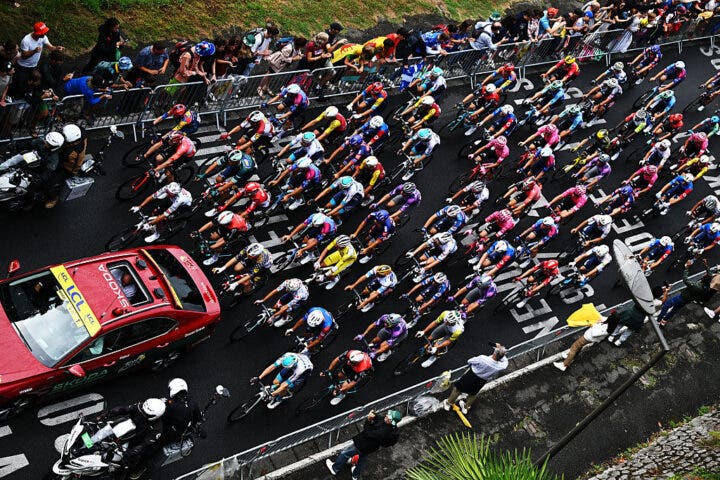 Some say there are too many moving pieces in the peloton for a betting conspiracy to work. (Photo: Getty Images/Velo)
Some say there are too many moving pieces in the peloton for a betting conspiracy to work. (Photo: Getty Images/Velo)
Cycling is an odd sport in that it’s a team effort, but there’s only one winner.
So in any given race, there are all kinds of informal deals made on the road in real time that don’t necessarily constitute cheating or inappropriately altering the outcome of a race.
Teams that typically face off might collaborate on a stage to chase down a common rival.
Riders in a breakaway will often pull in unison for shared interests. The most obvious example is riders agreeing to work together, with the understanding that one rider will win the stage and the other will gain time to perhaps even bounce into the overall leader’s jersey.
That’s a grey zone, and the UCI even has two rules on it: UCI rule 1.2.080 states that all participants must compete in a fair and sporting manner, with collusion or behavior that falsifies the competition being forbidden.
A second rule, 1.2.081, clarifies that riders must sportingly defend their own chances, and any collusion that goes against the interests of the competition is prohibited.
Buying and selling races is also nothing new in cycling.
History is full of riders selling a win for a pocket full of Belgian francs. That was commonplace in the days of low salaries, short contracts, and an unregulated rider market.
These kinds of deals — the alleged compact between Alexander Vinokourov and Aleksandr Kolobnev in the 2010 Liège-Bastogne-Liège even went to Belgian court — are frowned upon but are looked at as a contract between thieves without the danger of undermining the integrity of the sport.
In 2021, Belgian researchers delved into this grey zone in a lengthy study.
Even today, riders can be overheard in live TV broadcasts with a quick comment, “Me dejas a ganar? You’ll let me win?”
The worry today is that the growing influence of legal online betting and illegal backroom wagers could start to bend and break cycling’s long-running traditions for economic gain ahead of sporting outcomes.
Velo reached out to several sources for this story, and no one said they were aware of a case of a rider or sport director purposely trying to alter the outcome of a race for betting reasons.
A few said it would be almost impossible to rig a race, but at least one source said it wouldn’t be hard to do.
Does that mean it’s never happened? No. Could it happen? Almost certainly yes.
The real danger: ‘Prop’ bets and live betting
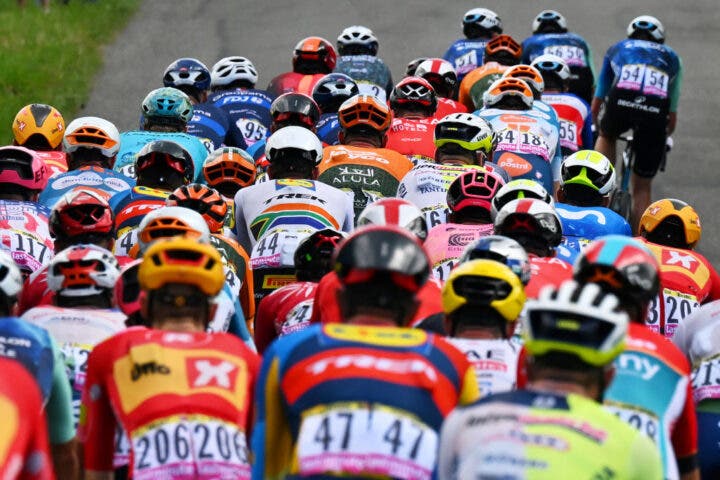 Some see the risk lies within the so-called prop bets. (Photo: Tim de Waele/Getty Images)
Some see the risk lies within the so-called prop bets. (Photo: Tim de Waele/Getty Images)
Most bets are pretty straightforward. Look at most websites, and it’s the cookie-cutter odds on who will win Paris-Roubaix or the Tour de France.
Tadej Pogačar is so heavily favored to win the 2026 Tour de France that the odds are negative 300. That means you must bet $300 to earn $100. Remco Evenepoel is at 15-to-1, meaning a $100 bet will pay out $1,500 if the Belgian pulls on the yellow jersey.
Are Pogačar and Evenepoel going to be part of some elaborate scheme to throw the race? Almost certainly not. Too much is at stake for both riders and their respective teams to risk that.
Plus, today’s top riders are so well paid — with Pogačar earning an estimated $12 million per season — there’s almost no incentive to risk all of that for some dark betting conspiracy.
Where many see the real danger for cheating is in the growing online betting genre of “proposition betting,” making wagers on the action once the race has started, and in “head-to-head” betting.
Prop betting is a popular niche, and today several U.S. stadiums have special betting rooms similar to Las Vegas casinos’ sports books to make bets on every outcome of nearly every scenario.
In cycling, this is not nearly prevalent, but it’s available on some platforms.
For example, punters can bet on who will win out of a breakaway once a big gap is established. The fear is that riders and/or sport directors might try to manipulate the outcome of a breakaway based on how the bets are swinging.
Of course, in the fast-moving chess match that is any bike race involving 20 teams and nearly 200 racers, it’s almost impossible to control all the dynamics.
But the danger is in tilting the action one way or another just enough to alter the outcome.
A sports director might tell a rider to stop pulling, not for tactical reasons, but to give the break fewer chances of succeeding so it can swing the bet. The break might have been caught anyway, but there is the specter of cheating to undermine the integrity of racing for a sports bet payoff.
The other perceived danger is in head-to-head betting between individual riders or teams.
Some sites also allow betting on riders’ placement in stages or a race.
For example, rider A is favored to beat rider B in Strade Bianche. One of the riders might be informed that there’s big money on them finishing behind another rider, and that rider could purposely finish ahead or behind to swing a bet one way or the other.
The risk is that a savvy rider or corrupt sports director could manipulate results in subtle, almost imperceptible ways, and then pocket proceeds from the outcome of the bets.
Belgian pool halls and offline betting
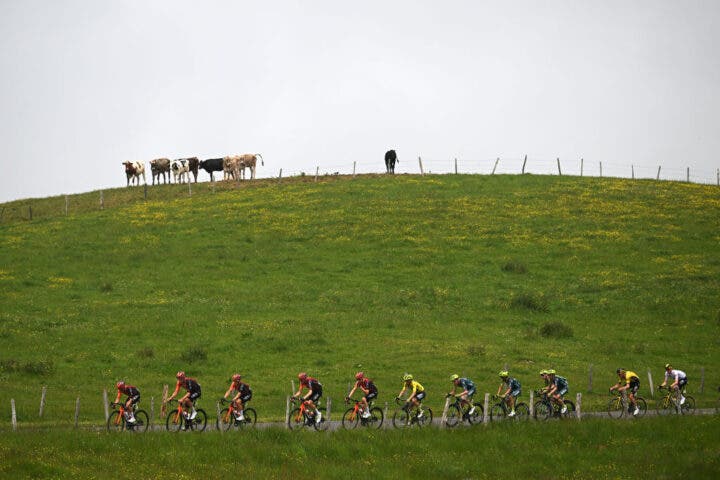 Not all wagers are made within legal betting platforms or casinos. (Photo: Dario Belingheri/Getty Images)
Not all wagers are made within legal betting platforms or casinos. (Photo: Dario Belingheri/Getty Images)
Even worse is illegal betting not via online sites that at least have at least some level of regulation and tracking.
It’s the illegal bets, perhaps made in pool halls or bars by shady underworld figures, where it’s almost impossible to monitor.
In cycling, those numbers would be minuscule compared to what might happen in mainstream American sports, perhaps just a few hundred or thousands of dollars.
But imagine a Belgian underground network making high-euro bets, especially on lower-level races that are not televised or followed as closely.
It’s that threat of betting and the scandal it would wreak that raises the alarm bells in the halls of the UCI headquarters in Aigle.
Lappartient even signaled the use of earpieces in races as a possible tool for would-be cheaters.
“And then you have something else with the earpieces, they make cycling very sensitive to online betting,” Lappartient said to Het Laatste Nieuws. “You can communicate directly with the rider in the race. Officially, the connection goes from a team car to a rider. But technologically, there is nothing that prevents me or you from calling the wearer of the yellow jersey during a stage of the Tour, right?”
The risk is read, what’s being done?
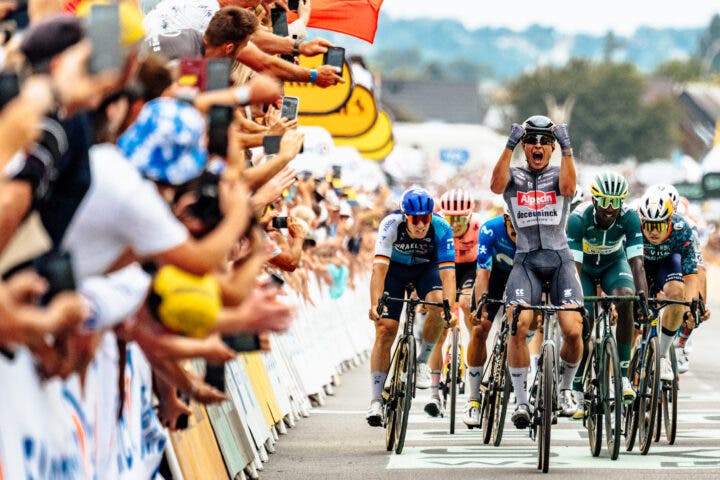 Sources say they’ve never heard of races being fixed due to gambling. (Photo: Chris Auld/Velo)
Sources say they’ve never heard of races being fixed due to gambling. (Photo: Chris Auld/Velo)
The UCI did not respond when Velo reached out for comment for this story.
Lappartient is well aware of the credibility risk to cycling and put it as a central theme to his manifesto when he ran for the UCI presidency in 2017.
The UCI already works behind the scenes on intelligence gathering on doping and technological fraud, and certainly would have its ears perked if there were any whispers about illegal betting or race fixing.
The cycling governing body and other groups like WADA also have anonymous hotlines where information can be shared anonymously.
During the EPO era, however, the UCI buried its head for years in part because there was no legal framework to go after dopers.
Online gambling, especially within Europe, is highly regulated, so if something comes up, the authorities will be involved.
In the NBA case, the betting platforms directly tipped off the FBI about unnatural betting flows around certain players and games. That information was central to the high-profile case that broke last month.
Sources were mixed on the gambling’s rising influence and any perceived threat to cycling.
Several said there are simply too many moving pieces and too many individuals involved to produce any sort of race-shifting outcome.
At least one source, however, said they believed just one or two corrupt individuals on a team could swing a race.
Cycling’s always had its unspoken pacts. But in an era of billion-dollar betting markets, imagine what happens when the bookies get involved.

